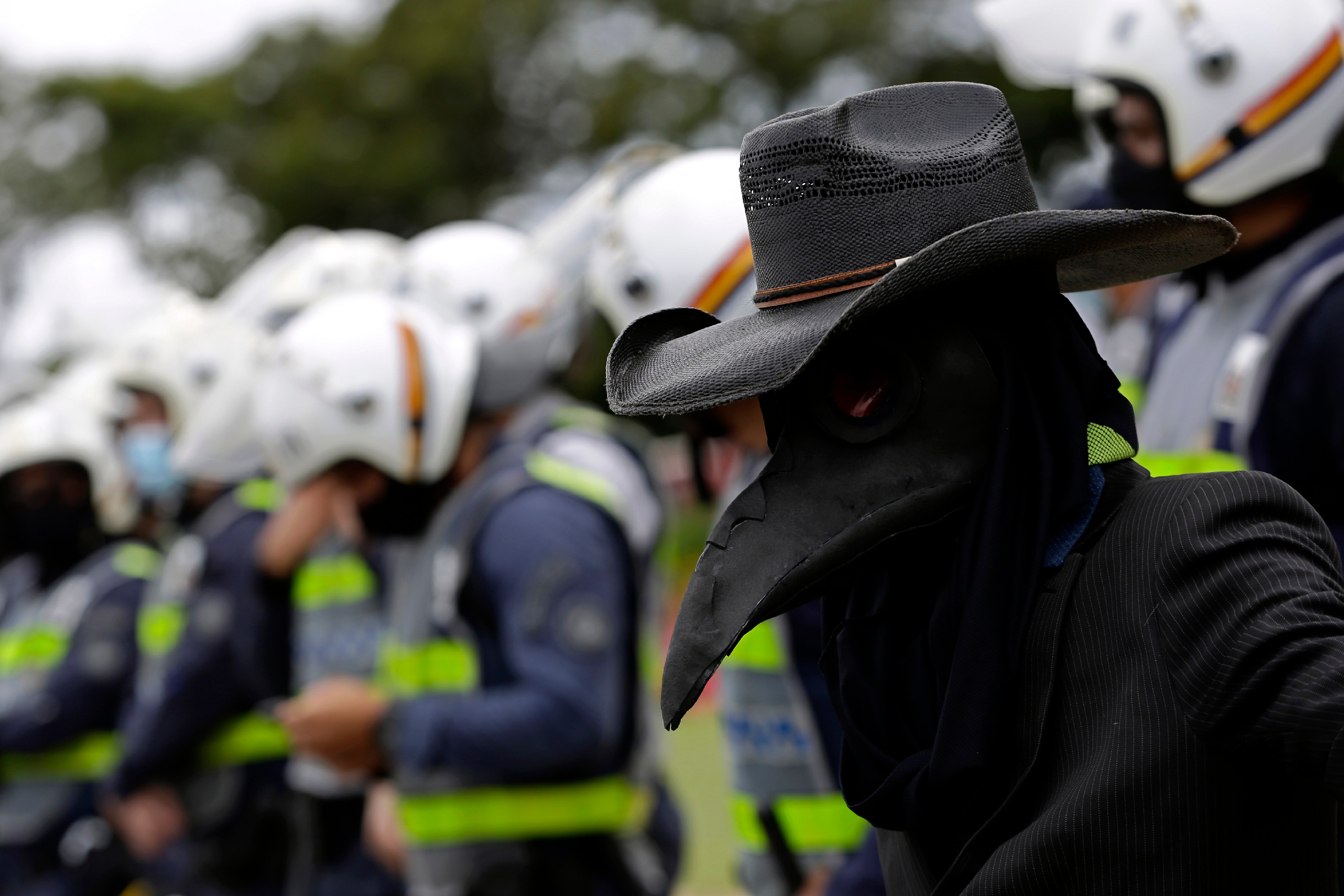Brazil economy faces headwinds after worst plunge in decades
Brazil has dodged the most dire economic forecastsfor 2020, but new government figures show the COVID-19 pandemic battered the nation and clouds the outlook for recovery

Your support helps us to tell the story
From reproductive rights to climate change to Big Tech, The Independent is on the ground when the story is developing. Whether it's investigating the financials of Elon Musk's pro-Trump PAC or producing our latest documentary, 'The A Word', which shines a light on the American women fighting for reproductive rights, we know how important it is to parse out the facts from the messaging.
At such a critical moment in US history, we need reporters on the ground. Your donation allows us to keep sending journalists to speak to both sides of the story.
The Independent is trusted by Americans across the entire political spectrum. And unlike many other quality news outlets, we choose not to lock Americans out of our reporting and analysis with paywalls. We believe quality journalism should be available to everyone, paid for by those who can afford it.
Your support makes all the difference.RIO DE JANEIRO — Brazil dodged the most dire economic forecasts in 2020, but official figures released Wednesday show the COVID-19 pandemic still battered the nation and it continues to dim the outlook for recovery.
Brazil’s gross domestic product contracted 4.1% in 2020, the biggest annual recession since the series began in 1996, according to Brazil’s official statistics institute, known as IBGE. Still, the result is better the 5.3% plunge forecast by the International Monetary Fund in April last year
Since the beginning of the health crisis, Brazil’s President Jair Bolsonaro has been adamant that the economy must keep running, arguing that lockdowns and restrictions would inflict greater hardship on the population than the disease. That position, which flew in the face of public health experts’ recommendations, helped stave off an even deeper recession, at least in the short term — as did a generous pandemic welfare program.
But the country is once again recording more than 1,000 daily deaths from COVID-19, which could cause further economic slowdown.
“The worsening COVID-19 outbreak is casting a dark cloud over the outlook for the next few months at least,” William Jackson, an economist at Capital Economics, wrote in a report published Wednesday. Jackson pointed to a plunge in retail sales and likelihood of tighter measures to limit the virus’ spread.
The number of new COVID-19 cases in Brazil is still surging, with a new record high 1,641 deaths reported on Tuesday. The state-run Fiocruz Institute said Tuesday that intensive-care unit occupation rates in 18 states and the Federal District had surpassed 80% – a level considered critical.
As a result, many state governors, scientists and health experts have begun pushing for stricter lockdowns.
Bolsonaro has forcefully opposed measures by governors and mayors to limit activity, though the Supreme Court ruled last year that such decisions are local authorities’ prerogative.
Brazil saw a robust rebound in the back half of 2020, with 7.7% and 3.2% growth in the third and fourth quarters, IBGE data showed. Family consumption buoyed results in both quarters, helped by the government welfare program, but that was discontinued at the end of the year.
Brazil’s economy was expected to contract less in 2020 than any other major economy in the region, the IMF’s Western Hemisphere director, Alejandro Werner, wrote in a report last month.
Nearly 14 million people were unemployed in Brazil at the end of 2020, a slight improvement from the third quarter, according to IBGE data. Even more were underemployed.
Under increasing pressure to restore at least some emergency funding to poor Brazilians, Economy Minister Paulo Guedes warned this week that Brazil’s economy could resemble that of Argentina within six months and Venezuela within a year and a half if it doesn’t limit spending.
As mass vaccination progresses, Goldman Sachs said in a note Wednesday it expected Brazil’s services industry, which has been particularly badly hit, to recover by the second half of next year. “In the very near-term, the recent pick-up in new viral cases, the acceleration of inflation and the phasing-out of some of the generous fiscal transfers programs may soften the momentum behind the recovery of the services sectors.”